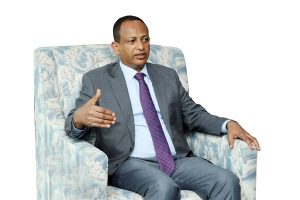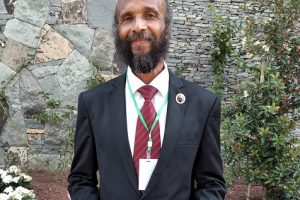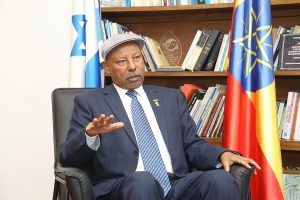
With a population of more than 1 billion people, Africa has one of the largest number of mobile phone subscribers in the world. The large number of mobile phone users and the growing internet service penetration have the potential to expand digital financial services.
Yet more than 350 million people of the continent, almost one out of three people are financially excluded. This means this huge number of people do not have access to either banking services as well as digital payment services that are carried out through mobile networks or internet.
Several hindrances can be mentioned like availability of capable tools like mobile phones, strong network connectivity and building trust.
To address the factors that hold the large number of Africans as financial excluded, it is important to encourage the development of Inclusive Instant Payment Services (IIPS) in the continent. According to AfricaNenda, IIPS process retail transactions digitally in near real-time and are available for use 24 hours a day, 365 days a year or as close to that as possible. They enable low value, low cost push transactions that are irrevocable and based on open-loop and multilateral interoperability arrangements.
Based in Nairobi, Kenya, AfricaNenda is a team of African experts in digital payment, financial inclusion payment systems working on the continent. Among the activities it is engaged in conducting research on the situation of instant inclusive payments in the continent. As part of this, it conducts research on the State of Inclusive Instant Payment Systems (SIIPS) in Africa in collaboration with the United Nations Economic Commission for Africa (UNECA).
This year’s report, SIIPS 2023, is the second edition of it. According to the report, in the year 2023 there are 32 live payment systems of which 29 are country based and three regional ones. The 29 payment systems operate in 21 African countries.
The already operational payment systems have carried out about 32 billion transactions and a total of 1.2 trillion USD only in the year 2022. The researchers indicated that the stated volume of transaction refers only to 22 of the 32 IPS provider’s data from the remaining 10 operators was not available. This means the actual transaction exceeds far more than the aforementioned figure.
It is also a stunning fact that 27 African countries do not have such payment system at all. At the moment 17 countries are planning to start while three regional systems are also under preparation or planning level.
Today’s Herald Guest is Sabine Mensah, the Deputy CEO at AfricaNenda. Sabine has strong leadership experience in digital payments and mobile money across multilaterals and the private sector.
As the Deputy Chief Executive Officer, Sabine oversees AfricaNenda’s capacity-building and partnership efforts through convenings and thought leadership, with the aim of strengthening the payments ecosystem across Africa.
Prior to joining AfricaNenda, Sabine served as the Regional Digital Hub Manager for the United Nations Capital Development Fund (UNCDF), where she led the development of inclusive digital economies to accelerate financial inclusion across West and Central Africa. She also successfully drove UNCDF’s global digital infrastructure work stream.
As the Regional Director responsible for domestic and international remittances at Western Union Canada, she specialized in agent network management and remittance product design.
Sabine is a Certified Digital Finance Practitioner by Digital Frontier Institute, and an alumna of the Institut Franco-Américain de Management in France and Central Michigan University in the United States.
During her brief stay with The Ethiopian Herald, she has explained about the objective of AfricaNenda in promoting IIPS in Africa collaboration with African countries. Enjoy reading!

Could you tell us about Africa Nenda’s objectives in promoting SIIPS in the continent?
Our sole objective is really to work with government, regulator, private sector Association, and the rest of the development sector partners to develop or support the scale up of inclusive instant payment systems across Africa. We do that through providing technical assistance with our experts providing support for pre project depending on where the journey is for each of the countries. We also provide a lot of research, like the State of Inclusive Instant Payment Services (SIIPS) reports, benchmark for policymakers to see what has been done in other countries. Because we believe that the digital journey is not one to be done alone. It’s one to build on best practices and lessons across the world to fast track our journey.
When we talk about payment services we mention the words inclusive and instant. Why are these two “I” s important? Can you explain in that?
Thirty years ago, instant was defined differently than today. I remember, when I did a wire transfer from Burkina Faso to Cote d’Ivoire, it took two weeks for instance, when I was a student. And the only way I had to connect with my current husband was through mail, and it took a week to receive information. Then we had mobile phones that came in, then instantly I can call, I can talk to somebody and have it then we have now video calling and it’s right there. While the journey for payment also has improved. Today, instant payment means that within seconds, you can transmit a payment to somebody or you can receive a payment to somebody I think we even say you can tap some payments, you can waive for some payments, you can type for some payments, but that transaction goes within seconds. So this is what instant payment is; the ability to make payments, digital payments that are in real time, and are available 24/7, 365 days a year, as much as possible. That is the instant payment.
And that is what customers are demanding, particularly in Africa. We want money, we need money, and it has to be right away. If the solution is in three days, you are going to get it, we are missing on the opportunity. So that’s the instant piece. But there is another “I” in that; that’s the Instant payment system (IPS). And then we have IIPS, inclusive instant payments. So we believe that it’s not just about sending money instantly. There are so many other layers. For it to be inclusive it has to cater to all channels, doesn’t matter which phone you have. Doesn’t matter which provider you are with, you should be able through a unique interaction on your simplest mobile phone to send and receive money to anybody else in the country. That is interoperability. So inclusivity takes into account the interoperability piece. It also takes into account what you can do with digital money, if the only thing you can do is send money and receive money, we haven’t solved much. We have to be able to do everything we will do with cash but better. So I can send money, I can receive money, I can even have access to a loan with the digital money, I can receive a government payment, I can pay the government. If I have a small business, I can facilitate transactions for my suppliers, and I can receive my payment from customers as well. So the broadest range of use cases so that the value of digital money is far superior than that of cash. That’s how we’re going to facilitate the transaction that’s part of the inclusivity. It has to be affordable, because inclusive means that all of us can benefit from this digital rails and making the cost entry point as affordable as possible is part of inclusivity. Last but not least, there is a responsibility for the financial sector to protect consumers in the digital space and making sure that there are recourse mechanisms in place. If the service does not work, I have to be able to complain. And I have to know that there is a system, which is going to take my complaint investigate it and provides a solution for me, that is the expectation of an inclusive system that enable all channel, all service providers, interoperability all to all enables low cost, low value transactions seamlessly enable also a customer protection framework that is out there. And but in the governance of the system, regulator, whether it’s a central bank or order, sitting in that governance framework to make sure that the system is going to be focusing on bringing the more than 400 million Africans that are still financially excluded.
So inclusivity is a central issue here. So how do we evaluate the inclusivity of the operators and countries in Africa currently?
We started the state of inclusive instant payment system in 2021. What the landscape? What does inclusive mean? We need to understand. And in the report, while we’re doing it, we came up with the important components of the inclusivity journey from a consumer standpoint, and how do we offer a framework to be able to assess it, and we call it the instant payment system inclusivity framework. In this framework, we feel that inclusivity is not binary, it’s not yes or no, it is, how inclusive is it. So there are different levels of inclusivity. The basic level of inclusivity is that at least the instant payment works, and you can send money to me receive money, so person to person transfer is enabled, and person to business so I can pay with instant payment. That is the most basic and of course, mobile is enabled. So the most used channel across the country is now the second level of inclusivity, which is progressed.
Inclusivity means that you have the basic elements already. But in addition to that, interoperability also all is enabled, like I said, I can send to anybody, any bank account, any mobile money account, any provider, any telephone doesn’t matter, all to all with one single device one interaction. So that is one component of the progressive inclusivity. The second component for progressing inclusivity is really making sure that all financial service providers, bank and non-bank can provide services to our population. That third component is the central bank role or regulator role in the governance so that it’s inclusive, and the system is focused on inclusivity mandate. And as a regulator, they are managing the diverse, sometimes conflicting priorities to private sector to bring everybody around; we need to deliver the basic digital rails, so that we enable universal access to financial services that is at the progress level.
The third level is what we call mature inclusivity. At that level, we want to expect a digital ecosystem that enables all the use cases you can do with money and more. So you can send money person to person you can pay businesses, person to business, but you can also receive government payments, government or person, you can pay government person, the government, and you can enable businesses business to business payments as well. So broadest use case is enabled. And also, from a consumer perspective, it is centered on the needs of the consumer enabling that it is low cost, so affordable to all of us are enabling; also the protection mechanism we talked about recourse mechanisms. If it doesn’t work, who is going to solve my problem? If I have a fraud, how do we get a response to my problem? Those components are also covered, into the mature ecosystem mature level of inclusivity. So this is the framework that we have used to assess the ecosystem.
And this report; State of Inclusive Instant Payment Services 2023 (SIIPS 2023) is showing you that we have now 32 live instant payment systems across Africa, but not all of them are inclusive. So we currently have at the Progressed level of inclusivity the country systems of Ghana, of Malawi and Zambia and there is also one regional system that GMAC pay and the Economic and Monetary Community of Central African States.
One of the findings of the report this year, compared to last year is that we have had three new systems that have come into play. One of them is Eth Switch here. The second one is Virement Instantane in Morocco. And the third one is Payshap in South Africa. And I think Eth Switch and the ecosystem in Ethiopia is coming at the perfect time to leverage the lessons that we have in the ecosystem on inclusivity. And ensure that the system is delivering that to all of the people. So we have been very happy in this launch to see great representation of Eth Switch, and we are looking forward to working with them. So that hopefully, next year’s report, we can showcase what they have been able to accomplish in Ethiopia.
Africa is now bracing to implement one of the Flagship projects of the AU Agenda 2063: The African Continental Free Trade Area (AfCFTA). So in what way can AfricaNenda or IPS contribute to facilitating this?
When I think of trade, I think of two things, there’s an extent of good value or service. And then the other side is an exchange of money, somebody has to pay and somebody has to be paid for trade to happen. The AfCFTA is really opening up a market of more than a billion people in Africa. And it’s giving the opportunities for micro, small and medium enterprises, to not only cater to the consumers in your country, but go beyond borders, and build these multinational African enterprises we want to see for this to happen, it means that there are instant payment rails that are inclusive at a country level that are interoperable at the country level and also cross border level inclusivity. And that is where we all need to work together making sure that the instant and inclusive payment systems that are being developed are interoperable domestically. And we are also connecting them cross border to enable protocol interoperability.
On top of that for the AfCFTA ambitions to happen there was already worked by the Secretariat on the digital trade protocol. This is how key digital is in enabling intra Africa trade. And we had AfricaNenda contribute to this work, and providing technical support and making sure that the Inclusive Instant Payment rails that is needed in Africa to accelerate intra Africa trade are in place, are working, interoperable and inclusive.
What do you expect from governments of each African country to enable two IPs to operate more or to be more inclusive and effective?
The journey to inclusivity cannot happen without government. And as far as I’m concerned, government provides the biggest incentive population who are outside of the financial ecosystem to come into their financial ecosystem. If government were to use instant, inclusive payment systems real to enable all payments, citizens, for government, a person payment, millions of people will start the first interaction with digital financial services; there is an opportunity for government to digitize payment. That is an opportunity for government to lead the inclusion of all of our people so that we make sure that digital transformation that’s happening in Africa leaves no one behind. And there are several places that government can intervene. The regulatory and policy environment has to enable Instant Inclusive Payment System to happen has to enable interoperability of all the financial sector providers to come together and be able to deliver this system. The government can also through incentives for our population to adopt digital work with the digitization agenda, what are its benefits payment in the agricultural sector, in each of the sector, where it enables us more inclusion, government has an opportunity to really provide the incentive for this to happen. And government also has an opportunity to make sure that the consumer protection mechanisms that need to be there to protect us and protect the financial ecosystem are there and enforces them so that we are not leaving anybody behind in the digital economy.
What do you expect in the coming Five or Ten years in terms of IPS in Africa?
Today we have 32 Instant Payment systems that are live in a country. What is important to remember is that there are 27 countries in Africa today, which don’t have instant payment capacity at the national level. So, what we expect the next five years, and hopefully, this is for us the agenda at AfricaNenda to enable inclusive instant payment systems in all countries in Africa by 2030, because we believe that inclusive instant payment system can enable universal access to financial services for all Africans, and will help us accelerate our journey to onboard more than 400 million people into the digital ecosystem.
Thank you very much for your valuable explanation!
My pleasure!
BY ZEKARIAS WOLDEMARIAM
THE ETHIOPIAN HERALD SATURDAY 11 NOVEMBER 2023





